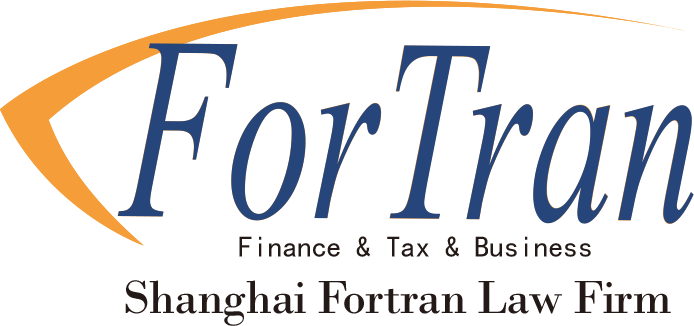This regulatory update covers seven key changes in the revised Company Law of the People's Republic of China
Seven Key Changes in the Revised Company Law of the People's Republic of China
The Company Law of the People's Republic of China (Presidential Order No. 15) was revised and passed by the Seventh Session of the Standing Committee of the 14th National People's Congress on December 29, 2023. It will come into effect on July 1, 2024. The implementation of this new law will involve adjustments and optimizations in various aspects such as shareholder rights and responsibilities, corporate organizational structure, and governance methods. Recently, the head of the Legal Work Committee of the Standing Committee of the National People's Congress responded to media inquiries and highlighted seven key features of the amended Company Law:
1. Improvement of the Capital System
· Registration of Capital Subscription: The system for the registration of capital subscription has been improved. It stipulates that the capital contribution period for shareholders of limited liability companies must not exceed five years. According to the State Administration for Market Regulation, the State Council is authorized to formulate specific measures for companies established before the implementation of the new law that have a contribution period exceeding the statutory limit, allowing for a transition period to gradually adjust the contribution period to comply with the new law.
· Authorized Capital System for Joint-Stock Companies: The authorized capital system is introduced for joint-stock companies, allowing the articles of association or the shareholders' meeting to authorize the board of directors to issue shares. At the same time, promoters must pay in full for the shares. This system facilitates company establishment, increases fundraising flexibility, and mitigates issues like the virtual nature of registered capital.
· Issuance of Special Shares: Joint-stock companies can issue preferred stocks, subordinated shares, shares with special voting rights, and restricted transfer shares.
· Choice of Stock Types: Joint-stock companies are allowed to issue preferred shares, subordinated shares, shares with special voting rights, and restricted transfer shares, among other types of shares.
· Use of Capital Reserves to Offset Losses: Companies are permitted to use capital reserves to offset losses according to regulations.
· Simplified Capital Reduction: A simplified capital reduction system is introduced, allowing companies to reduce their registered capital to offset losses, but prohibiting the distribution of capital to shareholders or exempting shareholders from their contribution obligations.
· Shareholder Liability for Unpaid Contributions: A system is introduced where shareholders who fail to make timely capital contributions lose their rights, and a system for accelerating the maturity of unpaid contributions is included, along with provisions for the responsibilities of both transferors and transferees after a transfer of shares.
2. Optimization of Corporate Governance
· Board of Directors Only: Companies are allowed to have only a board of directors without a supervisory board. In such cases, an audit committee within the board must exercise the functions of the supervisory board.
· Simplified Organizational Structure: For small companies or those with few shareholders, the company may have only one director instead of a full board and may opt for one supervisor instead of a supervisory board. For limited liability companies with few shareholders, the company may not have a supervisory board if all shareholders agree unanimously.
· Employee Participation in Corporate Governance: To better protect employee participation, companies with over 300 employees are required to include employee representatives on the board of directors. Employee representatives may also become members of the audit committee.
· Procedures for the Audit Committee: Provisions are made for the procedures and voting mechanisms of the audit committees of both joint-stock companies and listed companies.
3. Strengthening the Protection of Shareholder Rights
· Enhanced Right to Information: Shareholders' right to access information is expanded, allowing shareholders of limited liability companies to review accounting vouchers, and shareholders of joint-stock companies to review accounting books and vouchers if they meet certain criteria. Shareholders are also permitted to access and copy materials from wholly owned subsidiaries.
· Improved Procedures for Calling Shareholder Meetings: The procedures for shareholders to request an extraordinary shareholders' meeting are improved, along with enhanced provisions for shareholder’s right to propose temporary resolutions, and increased shareholder participation in governance.
· Protection Against Abuse of Power: If a controlling shareholder abuses its rights in a way that severely harms the interests of the company or other shareholders, other shareholders have the right to request the company to buy back its shares at a reasonable price.
· Reduction of Registered Capital: When a company reduces its registered capital, it must proportionally reduce shareholders' contributions or shares based on their capital contributions or shareholding, unless otherwise provided by law, agreed upon by all shareholders of a limited liability company, or specified in the articles of association of a joint-stock company.
· Derivative Action by Shareholders: Shareholders are permitted to initiate derivative actions against the directors, supervisors, and senior management of the company's wholly-owned subsidiaries.
4. Strengthening the Responsibilities of Controlling Shareholders, Actual Controllers, Directors, Supervisors and Senior Management
· Fiduciary and Diligence Obligations: The specific content of the fiduciary and diligence obligations is improved.
· Regulation of Related Party Transactions: The regulations regarding related party transactions are strengthened, including new reporting obligations and voting avoidance rules.
· Capital Maintenance: Directors, supervisors, and senior management are required to ensure that the company maintains adequate capital.
· Liability for Damages: If directors or senior management intentionally or due to gross negligence cause damage to others while performing their duties, they must bear liability for damages.
· Responsibility of Controlling Shareholders and Actual Controllers: Controlling shareholders or actual controllers who do not serve as directors but actually control the company are required to fulfill fiduciary and diligent duties to the company.
· Joint Liability for Misconduct: Controlling shareholders or actual controllers who instruct directors or senior management to engage in actions that harm the interests of the company or shareholders will bear joint liability with those directors or senior management.
5. Improvement of Company Establishment and Exit Systems
· Company Registration: New provisions are added regarding the registration of companies, including matters and procedures for establishment, change, and deregistration. Registration authorities are required to optimize the process and improve efficiency.
· Electronic Systems: The legal effectiveness of electronic business licenses, public announcements through the National Enterprise Credit Information Publicity System, and meetings and voting conducted electronically are clarified.
· Broadening Capital Contribution Methods: The scope of assets that can be used as capital contributions is expanded, explicitly allowing stock and debt to be used as contributions.
· Relaxing Restrictions on Single-member Companies: Restrictions on the establishment of single-member limited liability companies are eased, and the establishment of single-member joint-stock companies is allowed.
· Simplified Liquidation and Forced Deregistration: A simplified liquidation and compulsory deregistration system is introduced to facilitate company exit.
6. Improvement of State-Owned Enterprises' Provisions
· Regulations on State-Owned Enterprises: Special provisions regarding the organizational structure of state-owned enterprises are expanded to include wholly state-owned and state-controlled limited liability companies and joint-stock companies.
· Party Leadership: The leadership role of the Communist Party of China within state-owned enterprises is emphasized.
· External Directors in State-Owned Enterprises: State-owned enterprises are required to have more than half of their board members as external directors.
· Audit Committee in State-Owned Enterprises: For state-owned wholly-owned companies, if the board of directors establishes an audit committee composed of directors to exercise the functions of the supervisory board, no separate supervisory board or supervisors shall be set up.
7. Enhancement of Corporate Bond Regulations
· Regulatory Shifts: In line with the restructuring of the State Council, the responsibilities of the National Development and Reform Commission regarding enterprise bond reviews are transferred to the China Securities Regulatory Commission.
· Public and Private Offerings of Bonds: Corporate bonds can be issued publicly or privately.
· Expansion of Convertible Bond Issuance: The scope of companies eligible to issue convertible bonds is extended from just listed companies to all joint-stock companies.
· Bondholders' Meeting: Provisions regarding the effectiveness of resolutions from bondholders' meetings are strengthened, along with additional regulations on bond trustee management.




